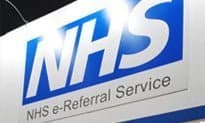New E-Referral Service still has issues

Users of the new NHS e-Referral Service are still experiencing significant slowdown and other issues nearly two weeks after the system went live.
In the days after replacing the old Choose and Book system on Monday 15 June, the service was beset by slow functionality and several periods where it was shut down completely.
Although the system is now thought to be stable, the HSCIC says that “some residual functional and performance issues persist”, with most problems relating to the performance of the system in provider organisations that are processing referrals.
One of the main issues has been with worklist performance, with the service timing out for users with large worklists. These problems have also led to wider degradation of the service.
To address this, the HSCIC intends to release a new version of the NHS e-Referral Service, which will include a worklist sorting feature.
Version 4.1 has already been develop and tested, according to a status update on the HSCIC’s website, and should be available in the next seven days.
In the meantime, the HSCIC says it has visited several providers experiencing significant problems with worklist performance to provide support, including recommendations to change the browser they are using as some browser/Windows system combinations, such as Windows XP with Internet Explorer 7/8, can impact performance.
The HSCIC recommends that organisations check with their IT department about the possibility of installing Google Chrome or Mozilla Firefox, claiming that there has been a 75% improvement for some users that have changed browsers.
Other issues mentioned by the HSCIC include problems with service provider clinician admin users accessing the service on behalf of clinicians; errors in opening attachments; and issues converting advice and guidance responses into referrals. The HSCIC has either released or is working on fixes for these problems.
In a statement to Digital Health News, a spokesperson for the HSCIC said: “While the majority of NHS organisations are up and running with the new national system, we are helping local providers that have reported technical problems.
“As planned, we continue to operate around the clock to monitor the system, to investigate, diagnose and fix issues. We are sorry for any inconvenience this has caused and will continue to update users about how the system is operating and how they access support and guidance if they need it.”
Frimley Health NHS Foundation Trust e-Referrals Service project manager Simon Wheat said yesterday the system continues to run very slowly. “Until it’s up to full performance, it’s difficult to ascertain how it’s working,” he said.
Last week, the trust sent out fax numbers to local clinical commissioning groups as a contingency plan when the e-Referral Service was not functioning. Since the system has stabilised, Wheat said it has been encouraging CCGs to increase usage again.
“I still believe that an electronic booking system, whether Choose and Book or e-Referrals, is the way ahead when it’s done properly and used properly and to its full potential,” said Wheat. “You are always going to get teething problems with new systems, but I’m still a believer.”




